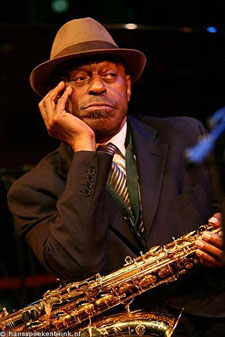
The role of music in the early civil rights movements is fairly widely known.
Classic gospel songs, some more than a century old, were refashioned and sung at demonstrations, on picket lines, and across the South.
Even the iconic song “We Shall Overcome" is based on an early spiritual. These songs expressed the surging energy of the Black freedom movement of the late 1950s and early 1960s.
Readers not familiar with defiant gems like “If You Miss Me at the Back of the Bus" or “I Ain't Scared of Your Jail 'Cause I Want My Freedom" should search out recordings as soon as possible. It is some of the most righteous, infectious music of the 20th century.
But the political mood evolved as the long decade of the 1960s progressed. Hope that the system could deliver meaningful reforms quickly dimmed, snuffed out by state violence and white-racist backlash.
Increasingly, working class Black people who made up the base of the Civil Rights movement looked for more radical solutions to their oppression. This was especially true in Northern cities where the lapping waves of the Southern struggle had yet to wash ashore.
Before long “nonviolence" sounded like an excuse for passivity, and “reform" seemed positively naive. This growing, roaring current of black discontent became know as the Black Power movement.
Classic gospel songs, some more than a century old, were refashioned and sung at demonstrations, on picket lines, and across the South.
Even the iconic song “We Shall Overcome" is based on an early spiritual. These songs expressed the surging energy of the Black freedom movement of the late 1950s and early 1960s.
Readers not familiar with defiant gems like “If You Miss Me at the Back of the Bus" or “I Ain't Scared of Your Jail 'Cause I Want My Freedom" should search out recordings as soon as possible. It is some of the most righteous, infectious music of the 20th century.
But the political mood evolved as the long decade of the 1960s progressed. Hope that the system could deliver meaningful reforms quickly dimmed, snuffed out by state violence and white-racist backlash.
Increasingly, working class Black people who made up the base of the Civil Rights movement looked for more radical solutions to their oppression. This was especially true in Northern cities where the lapping waves of the Southern struggle had yet to wash ashore.
Before long “nonviolence" sounded like an excuse for passivity, and “reform" seemed positively naive. This growing, roaring current of black discontent became know as the Black Power movement.
For more information contact All About Jazz.



























